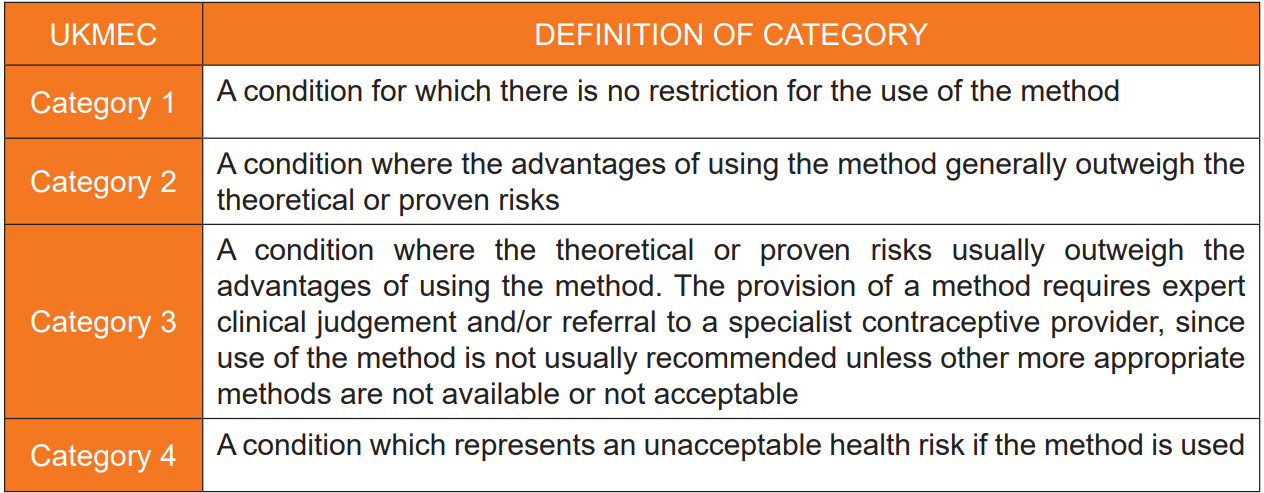Women's health toolkit
This Women’s health toolkit is categorised into sections best representing the needs of women at different stages of their lives.
Contraception
For a healthy young woman, a contraception consultation might be the first time that she interacts with her GP practice as an adult. More than half of all women using contraception are using a long-acting reversible contraception (LARC) method, but it is often still the case that ‘I want to start the pill’ is used as a shorthand for ‘I need some contraception’. It’s therefore vital that a first contraception consultation allows time to explore what a woman wants from her contraceptive method, and which type of contraception is best for her. The RCGP eLearning module on contraception discusses the first contraception consultation in more detail and uses a case study approach to illustrate how a woman’s priorities might change during her life, as well as giving detailed information on each method and addressing some common urban myths and how to counteract them. Those who wish to obtain extra qualifications, such as the FSRH diploma or qualification to fit intrauterine devices or implants, can find more information here.
When prescribing contraception, it is important to consider both efficacy and safety. For LARC methods, the efficacy for perfect use and typical use are very similar, as there is little margin for error by the user. This is not the case for methods such as the pill or patch, which require daily or weekly user input – the difference can be significant and is shown on this table.
When thinking about safety, the gold-standard reference is the UK Medical Eligibility Criteria for contraceptive use (UKMEC) which classes methods from 1 – 4, as per the table below. This is a situation where two plus two does not necessarily equal four and the UKMEC does not give proscriptive guidance as to how to assess the additive nature of risk factors, leaving this to clinical judgment. It does say that when there are multiple UKMEC 2s relating to the same risk that a different method might be considered, and that if there are multiple UKMEC 3s then the combined risk may be unacceptable. There is also a NICE guidance on LARC.
For more information on the different types of contraception, please see the RCGP eLearning module – the basics are also covered in our two A4 pages of NUBs (‘new and useful bits’) on contraception and specific situations in contraception, which focus on general principles of contraception provision and give more detail than this page. Patient information leaflets on all methods of contraception can be found on the contraception choices website.
For
more detail on the different methods, and providing contraception to particular
groups of
women, or in specific situations, see the guidelines from the Faculty of Sexual
and Reproductive Healthcare (FSRH):

Reproduced under licence from FSRH and the notice Copyright ©Faculty of Sexual and Reproductive Healthcare 2006 to 2016.